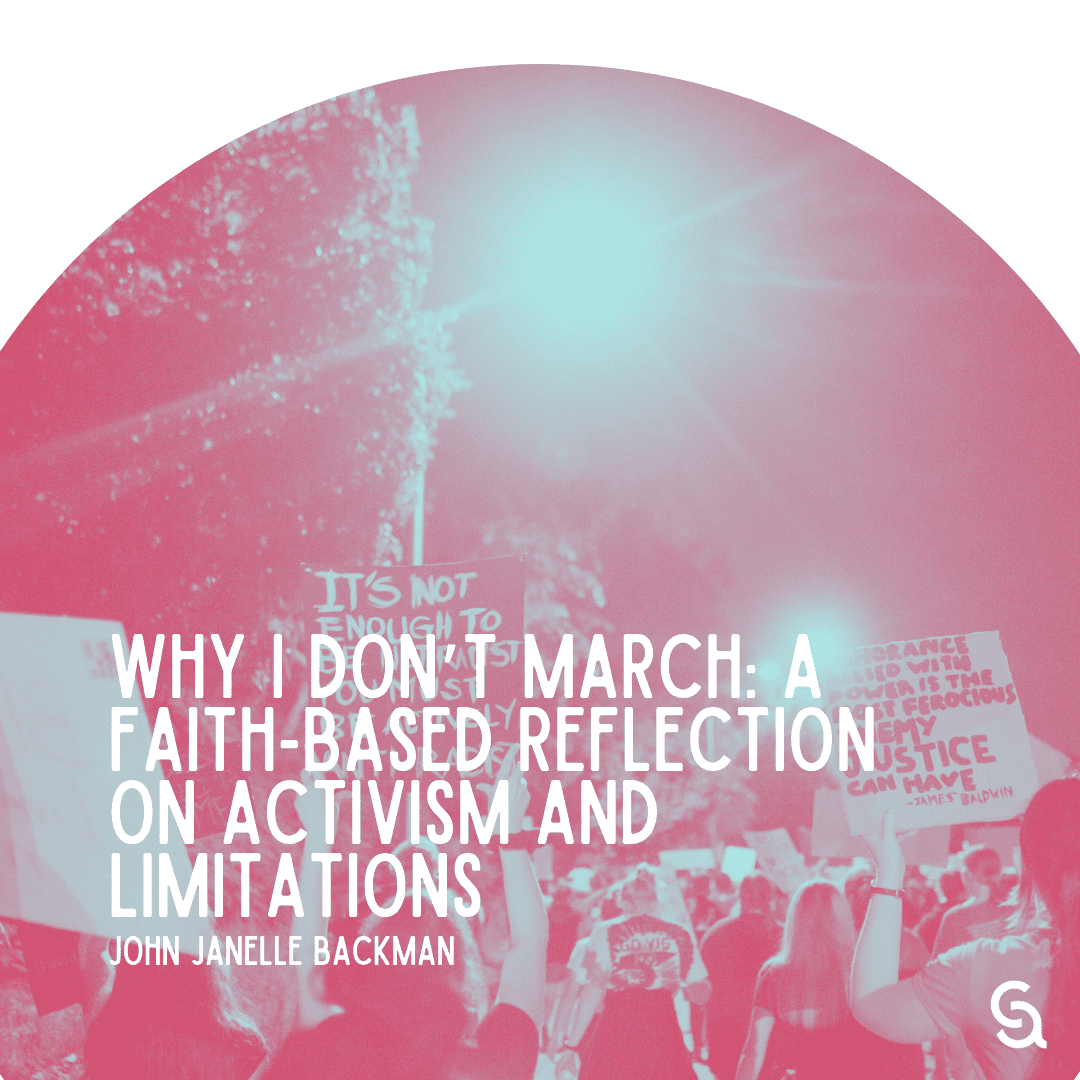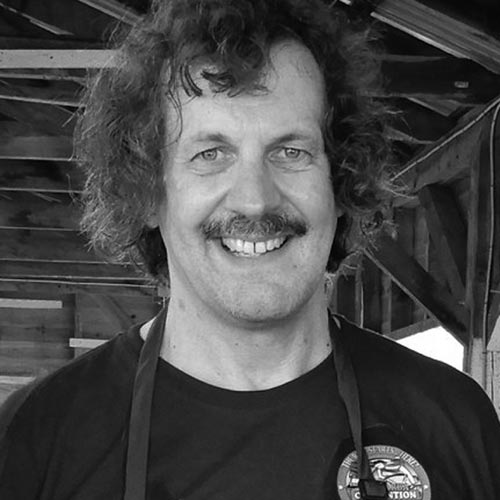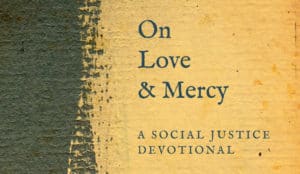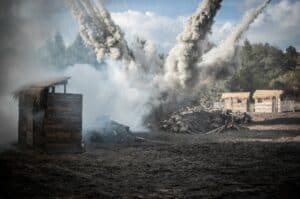 “For the task is too heavy for you; you cannot do it alone.” —Exodus 18:18
“For the task is too heavy for you; you cannot do it alone.” —Exodus 18:18
In my unconscious mind, the phrase social justice evokes one image only: me on a street somewhere, with lots of others, carrying placards and shouting words that rhyme. A quieter, more insistent voice whispers, See that? THAT’S what you should be doing. Nothing else matters.
Unrealistic? Of course. But still—my mind believes it.
I’m sure other minds do, too, faulting themselves not only for doing the “wrong” things but for not doing enough. These uneasy doubts can plague us even in the most stable of times, when global problems are merely overwhelming. Amid the chaos of 2025, their clamor feels more like a tsunami. The world is falling apart. So much is happening so fast. It demands a response! I’m not doing enough! But I’m only one person!
Guilt. Shame. Inadequacy.
This is why Jethro’s words mean so much to me.
God’s Word to the overextended
As the story goes, Jethro heard of God’s deliverance of Israel and went to see his son-in-law, Moses, at their camp in the wilderness. What Jethro saw troubled him. Not only was Moses trying to manage the tenuous relationship between God and the people, he also spent large parts of every day adjudicating disputes.
Moses did. Just Moses. No one else.
So Jethro took him aside: “What you are doing is not good. You will surely wear yourself out, both you and these people with you. For the task is too heavy for you; you cannot do it alone” (Exodus 18:17–18).
The way I read this, Jethro is actually validating one key point that our guilt-ridden minds keep making: I’m only one person. Which means I can make exactly one person’s difference in the world—the difference that aligns with the gifts God has given me, within the limitations God has given me.
And this isn’t the only place in Scripture where honoring our gifts and limitations comes up. In the early church, the twelve apostles—clearly already stretched—found themselves overseeing the daily distribution of food to widows. So they gathered the disciples and said, “It is not right that we should neglect the word of God in order to wait on tables. Therefore, friends, select from among yourselves seven men of good standing, full of the Spirit and of wisdom, whom we may appoint to this task, while we, for our part, will devote ourselves to prayer and to serving the word.” (Acts 6:2–4)
The parallel construction here fascinates me. Jethro says, “What you are doing is not good.” The apostles say, “It is not right.” In both cases, well-intentioned, gifted people have overextended themselves. It’s “not good,” and someone needs to call them back to their essential one-personness—to focus on what they’re best at, and let others carry other parts of the load.
Being our best one-person’s self
Over the years, through writing my book on dialogue and through life experience, I’ve come across some questions that help me make the most of my gifts while honoring my limitations:
-
What can I do? How has God gifted me? How might those gifts serve the needs of this moment? Two things I do well are write and think differently. I’ve written professionally for nearly 40 years, and when pondering issues of the day, I’m often drawn to the perspective no one else seems to mention. So I focus my contributions along those lines—writing, for example, in my blog about what it’s like to live through the Trump Era as a non-binary person. My blog doesn’t have a large audience, but those words are out there, with the potential to support others in their struggles and help foster understanding.
-
How much bandwidth do I have? This is a major reason I don’t march: I’ve struggled with low energy all my life, and the past four years with long COVID have depleted what little I had. So I offer what I can. Of course, all sorts of life circumstances—not just health, but family, work, church, friendships—can shape how much we’re able to do.
-
What does my heart care about? As a non-binary person, this one comes easily for me. If it doesn’t for you, take time to ask God, listen to your heart in silence, and see what it reveals. Reflect on your past commitments and notice what truly stirred you. (And if a clear answer doesn’t come, that’s okay. Sometimes trying a bit of this and that—creative work, advocacy, even marching—can help you discover what resonates.)
-
How much media can I absorb? I’m constantly adjusting my media intake—aiming to stay informed enough to anticipate threats to myself and loved ones but not so immersed that I burn out. It’s okay to set boundaries here—or, when needed, take a full break.
Times like these ask a lot of us. But they don’t ask everything—only what we can give, within our unique contexts, where we can make our best one-person’s difference. As we seek out those places, it’s worth recalling Frederick Buechner’s beautiful insight on vocation:
“The place God calls you to is the place where your deep gladness and the world’s deep hunger meet.”
That’s where I want to be.
 John Janelle Backman (she/her) is the author of Why Can’t We Talk? Christian Wisdom on Dialogue as a Habit of the Heart (SkyLight Paths, 2012). Her essays, which have appeared in journals like Catapult, HerStry, and the tiny journal, cover everything from gender identity to cats. She is (or has been) a freelance copywriter, a licensed guinea pig judge, the companion of a wife and myriad animals, and a James Joyce fanatic. Find her on the web at backmanwriter.com.
John Janelle Backman (she/her) is the author of Why Can’t We Talk? Christian Wisdom on Dialogue as a Habit of the Heart (SkyLight Paths, 2012). Her essays, which have appeared in journals like Catapult, HerStry, and the tiny journal, cover everything from gender identity to cats. She is (or has been) a freelance copywriter, a licensed guinea pig judge, the companion of a wife and myriad animals, and a James Joyce fanatic. Find her on the web at backmanwriter.com.


